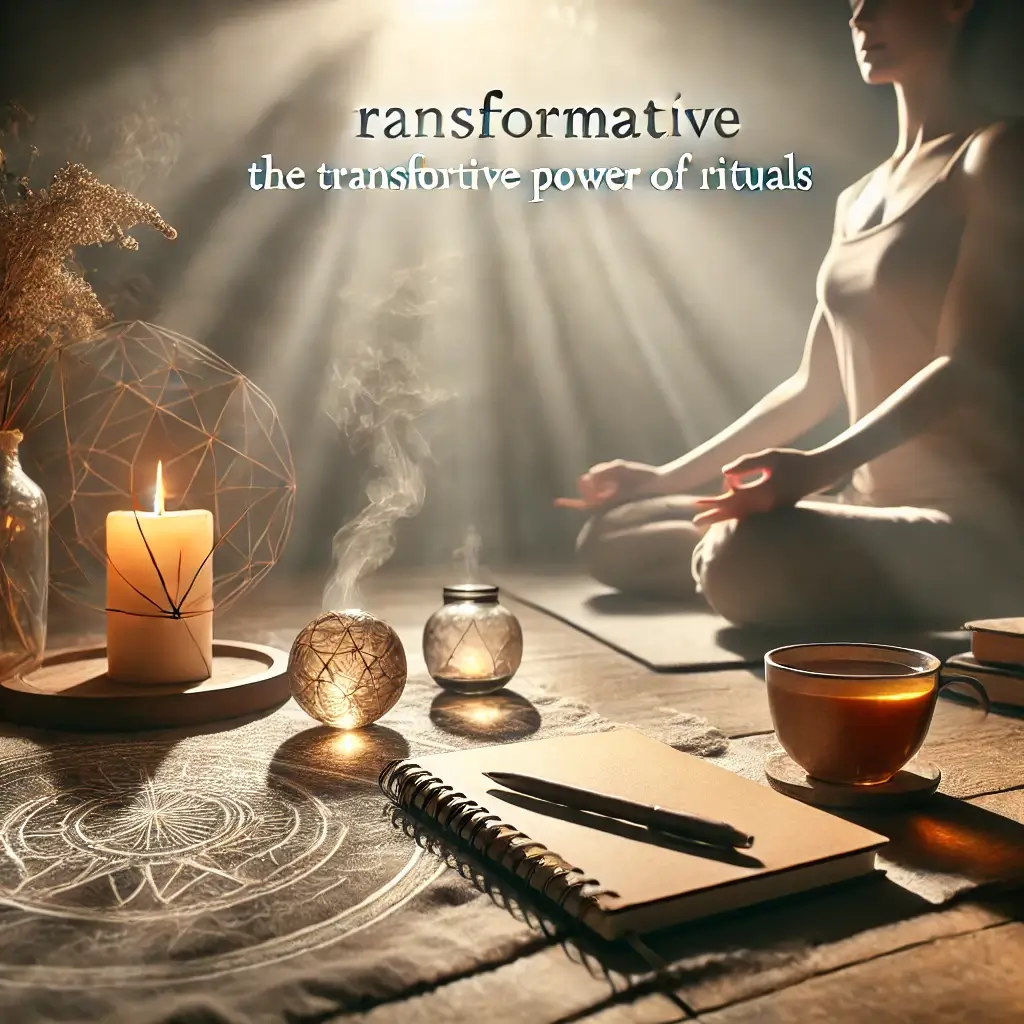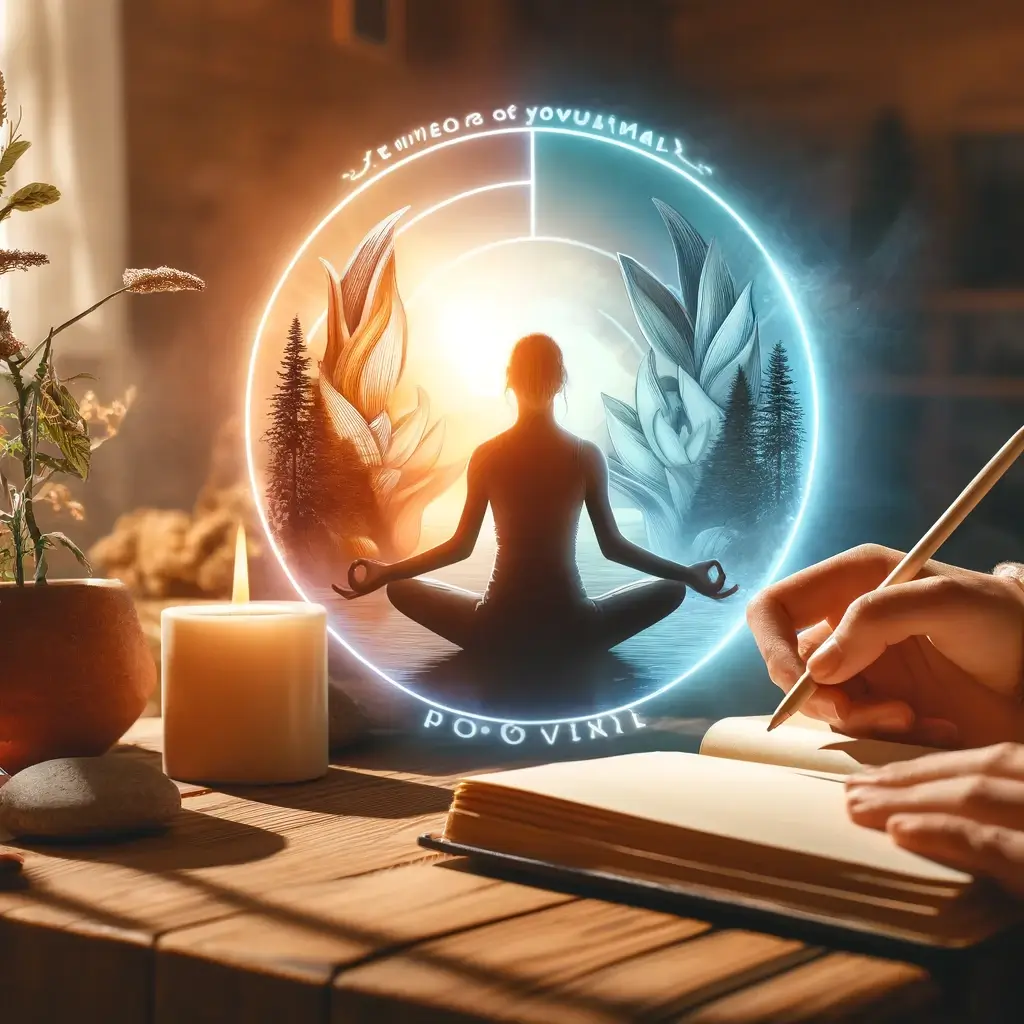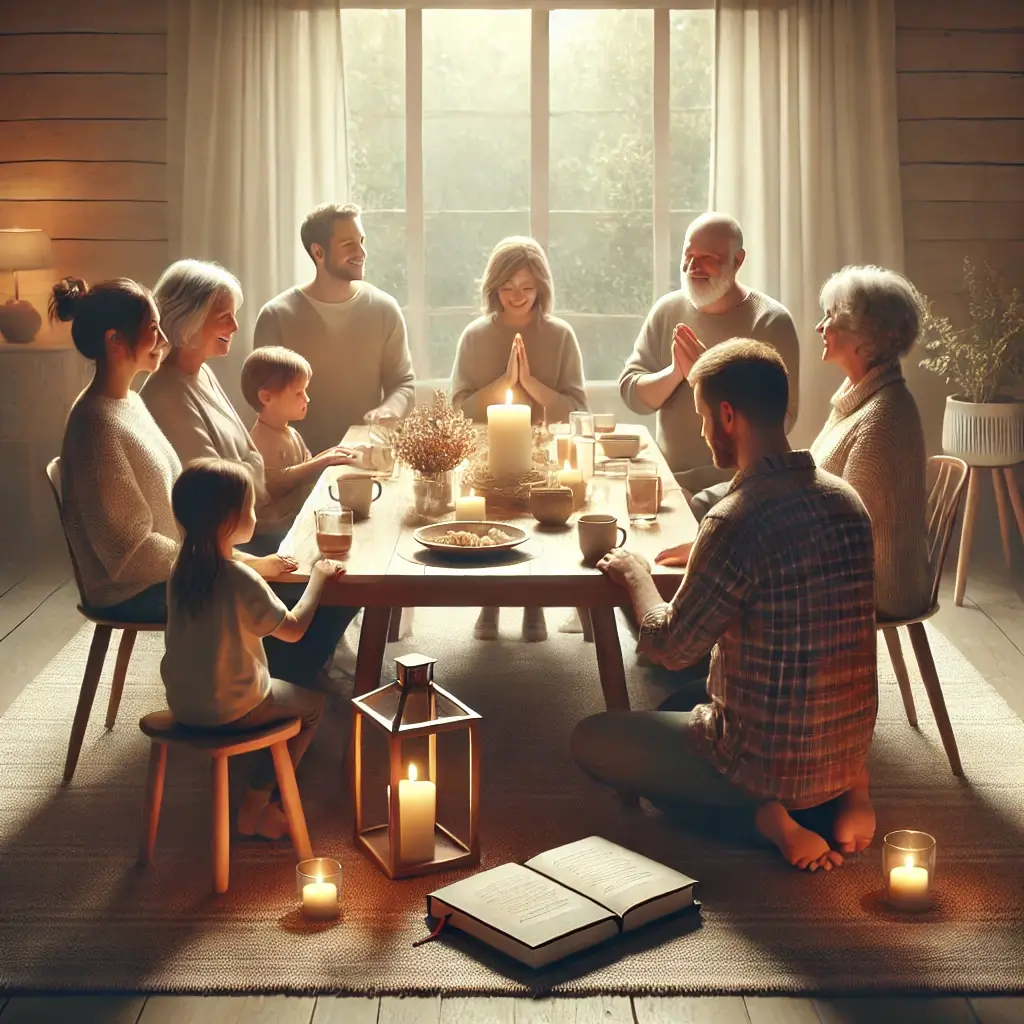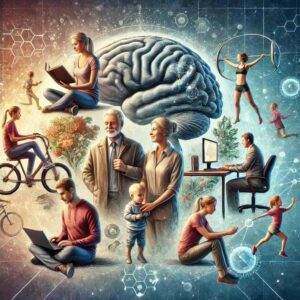Have you ever felt like life is a whirlwind of tasks, leaving you ungrounded, overwhelmed, and disconnected? 😓😩🤯
In today’s fast-paced world, it’s no wonder so many of us feel this way. We crave stability, a sense of control, and deeper meaning in our daily lives—but finding it can feel impossible.

Here’s the good news: rituals can help. Yes, rituals—we’ve all heard the word and think we know what it means, but cutting-edge science reveals they hold much more value. That’s exactly what we’ll explore today.
*Before moving on, I would like to thank the incredible Dr. John Vervaeke for his teachings and insights that made this article possible. I would also like to acknowledge the famous essay written by Theodore W. Jennings and Kevin Schilbrack, whose book Thinking Through Rituals was highly influential in Dr. Vervaeke’s teachings. Thanks go to all who have contributed to these profound ideas.*
Rituals aren’t just habits performed on autopilot. They’re intentional, mindful practices that infuse your day with meaning, purpose, and calm. And science backs their transformative power. 🕯️✨
🧠 What Makes Rituals So Powerful?

While habits save mental energy by operating automatically, rituals require your attention and focus. This intentionality is what makes rituals uniquely powerful tools for personal growth, emotional stability, and mental clarity.
- 💪 Build Resilience: Rituals provide structure, helping you feel more grounded and in control.
- 🎯 Enhance Focus: They clear the mental clutter and guide your energy toward what truly matters.
- 🌱 Foster Growth: Rituals encourage mindfulness, enabling gradual self-improvement.
- 😊 Increase Joy: They turn the mundane into meaningful moments, enriching your everyday life.
Research in cognitive science shows that rituals help regulate emotions, reduce stress, and improve overall well-being by aligning our actions with our values.
🔄 Habits vs. Rituals: What’s the Difference?

Understanding the distinction between habits and rituals is key to unlocking their benefits:
- Habits:
-
- Practical but automatic 🤖
- Require little thought or engagement
- Examples: Brushing your teeth, grabbing coffee, checking your phone
-
Rituals:
- Intentional and mindful 🌟
- Infused with purpose and meaning
- Examples: Reflecting on gratitude during breakfast, meditating before bed
While habits streamline life, rituals give it depth and intention.
The Science-Backed Benefits of Rituals

Rituals aren’t just feel-good practices—they’re proven to impact your mental, emotional, and even physical well-being. Here’s how:
💪 Resilience

Rituals create structure, helping you feel more in control during chaotic times. They act as emotional anchors, providing predictability and stability.
Example: Studies show that predictable patterns reduce anxiety by giving the brain a sense of control.
🎯 Focus

Rituals filter out distractions, guiding your energy toward what truly matters.
Example: John Vervaeke’s research on relevance realization shows how rituals help you prioritize meaningful actions by aligning your focus with your values.
🌱 Growth

Rituals encourage gradual improvement, helping you build a life with purpose. By staying within the Zone of Proximal Development (ZPD), they push you just enough to stretch your limits without overwhelming you.
😊 Happiness and Connection

Rituals bring joy by turning the ordinary into the extraordinary. Shared rituals foster stronger relationships, building trust and emotional intimacy.
Real-Life Examples of Rituals That Transform Lives

Rituals aren’t just theoretical—they’ve changed real lives:
-
Morning Ritual Success Story: Jane, a busy working mom, started a 5-minute morning breathing ritual. Within weeks, she felt more focused and less overwhelmed, leading to better performance at work and a calmer start to her day.
-
Evening Ritual Example: Mark used a gratitude journal to end his days positively, which helped him sleep better and reduced his overall stress.
How to Build Meaningful Rituals
🌟 Morning Ritual: 20 Breaths to Set Your Intentions

- Sit comfortably and take 20 slow, intentional breaths.
- Reflect on your day ahead—visualize key tasks and moments that matter.
- Set your intentions, focusing on how you want to feel (calm, focused, joyful).
🌙 Evening Ritual: Gratitude and Reflection

- Identify three things you’re grateful for, no matter how small.
- Reflect on what went well and what you learned.
- Let go of tension and prepare your mind for restful sleep.
Rituals for Different Life Stages

Tailor rituals to your current phase of life:
- For Parents: Morning mindfulness rituals to model calmness for children.
- For Professionals: Quick desk rituals to transition between tasks.
- For Students: Study rituals to boost focus and retention.
Common Myths About Rituals

Let’s bust a few misconceptions:
- “Rituals Take Too Much Time”: Even 5-minute rituals can create profound impact.
- “Rituals Are Too Complex”: Simplicity is key—mindfulness matters more than complexity.
- “Rituals Are Just Habits”: Unlike habits, rituals are infused with intention and meaning.
Do’s and Don’ts for Building Rituals ✔️❌

✔️ Do Start Small
Begin with simple, manageable rituals like a short breathing exercise or a gratitude practice.
❌ Don’t Overcomplicate
Focus on mindfulness, not perfection—rituals thrive on simplicity.
✔️ Do Be Consistent
Practice rituals at the same time daily to create structure and embed them into your routine.
❌ Don’t Rush
Rituals require presence, so take your time to fully engage with them.
Final Thoughts: Finding Meaning Through Rituals 🌌

Rituals are more than routines—they’re intentional practices that bring balance, clarity, and purpose to your life. By embracing even small rituals like:
☀️ Morning Intentions to set a positive tone for your day.
💭 Gratitude Practices to focus on life’s blessings.
📖 Weekly Reflections to track progress and growth.
You create moments of grounding and alignment that connect you to what truly matters. 🌟
✨ Start Small, Transform Over Time
Begin with one simple ritual today—a 5-minute intention-setting practice or a gratitude exercise before bed. Over time, these small, purposeful actions will evolve into transformative habits that help you thrive.
This was meant to introduce you to the incredible power of rituals and the science behind them. To explore deeper insights, I strongly recommend engaging with the work of the world-renowned wisdom expert, Dr. John Vervaeke. We’ve attached links to his transformative teachings at the end.
Did you enjoy this guide? Help others discover the Getting to Give Project by sharing it! 🌟 Your support allows more people to access science-backed resources that empower growth and resilience. Thank you for reading! 🙌
📚 Further Reading
- John Vervaeke – Relevance Realization
John Vervaeke’s Relevance Realization Theory
Explore how Relevance Realization helps the brain filter distractions and focus on meaningful aspects of life.
- Mihaly Csikszentmihalyi – Flow Theory
The Psychology of Optimal Experience – Mihaly Csikszentmihalyi
Dive into the groundbreaking work on flow and how it can enhance personal well-being.
- Lev Vygotsky – Zone of Proximal Development
ev Vygotsky’s Zone of Proximal Development (ZPD) is a foundational concept in educational psychology, emphasizing the gap between what a learner can achieve independently and what they can accomplish with guidance. This framework highlights the importance of social interaction and scaffolding in cognitive development. Simply Psychology
- Predictive Processing Theory
Predictive Processing is a theoretical framework in cognitive science that posits the brain as a prediction machine, constantly generating and updating models of the environment to anticipate sensory input. This approach offers insights into perception, action, and cognition, suggesting that much of our experience is shaped by top-down predictions. Mind Brained.
- The Science of Rituals
Rituals, ranging from daily routines to religious ceremonies, play a significant role in emotional and psychological well-being. Engaging in rituals can provide structure, reduce anxiety, and foster a sense of community and purpose. Understanding the science behind rituals reveals their impact on mental health and social cohesion. Greater Good Science Center




















